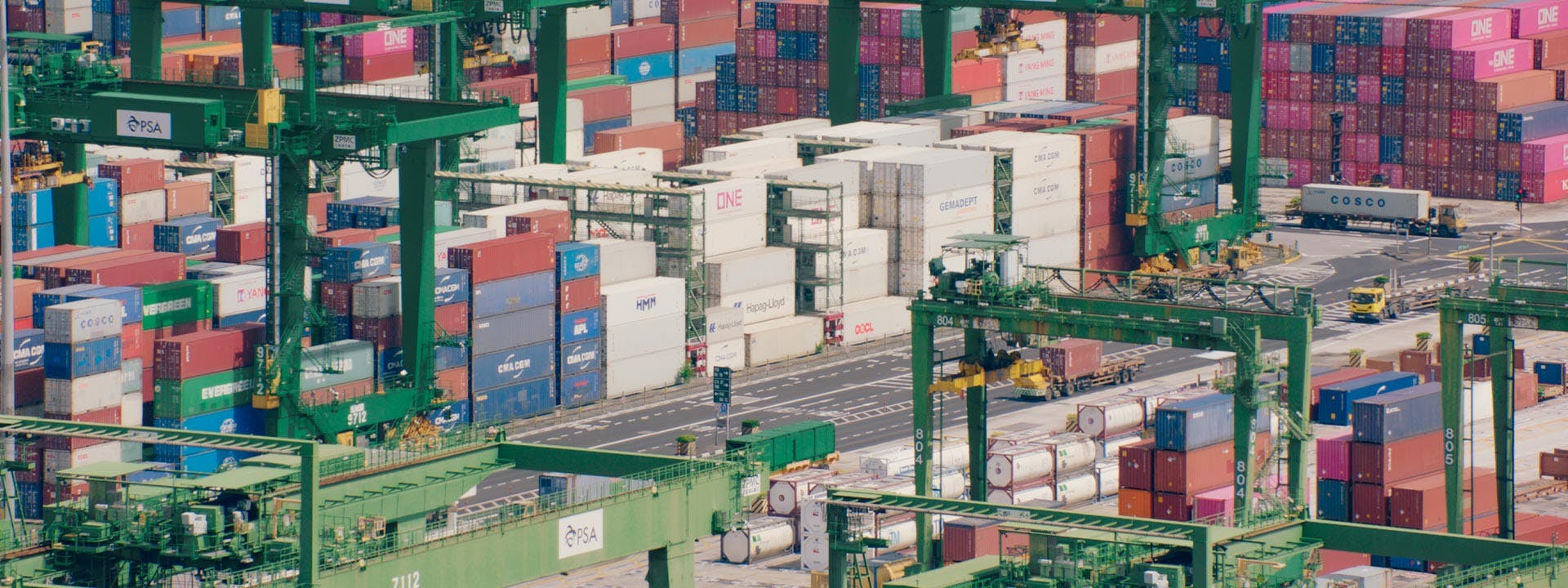Interoperability & efficiency
Imagine a fully interoperable trade ecosystem

Challenge
Currently, the container shipping industry is extremely fragmented in terms of data, processes and technology. This lack of alignment hinders collaboration and decreases the efficiency and effectiveness of almost every container shipping process. To maximize efficiency, data must flow seamlessly across the end-to-end container journey, yet paper-based and manual processes still dominate transactions. As a result, shipping processes cannot be optimised which decreases reliability, increases operational costs and produces unnecessary paper and carbon waste.
Objective
DCSA envisions a fully interoperable global trade ecosystem in which all stakeholders have on-demand access to accurate, timely digital shipping data and documentation that flow seamlessly across the end-to-end container journey. By aligning shipping data, processes and technology, DCSA standards create interoperability, which brings increased efficiency to all stakeholders. With DCSA standards in place, stakeholders can seamlessly exchange standarised digital data, enabling the automation of manual and paper-based processes such as cargo tracking, port calls, equipment management and documentation. Widespread adoption of DCSA digital standards will optimise efficiency and lower costs while improving the reliability and sustainability of international trade.
Create interoperability to increase efficiency
Contact us
Shape the future of container shipping with us. Contact us to discover how our digital standards can help your organisation create interoperability to increase efficiency.


DCSA's approach
DCSA collaborates with carriers, shippers, industry associations and other stakeholders to develop vendor-neutral, technology-agnostic, open-source standards for IT and non-competitive business practices to ensure the interoperability of container shipping solutions. By working toward the widespread adoption of the standards, DCSA aims to establish a foundation for the seamless end-to-end exchange of digital shipping data and documentation.
Key benefits
Interoperability leads to the following three key benefits:
- More reliable, effective shipping services
Through the seamless exchange of high-quality, real-time data with carriers and other stakeholders, shipping services become more transparent which increases their reliability and effectiveness. - Better business decisions
Make more cost-effective business decisions and optimise resource utilisation based on accurate, timely data. - Increased operational efficiency and sustainability
Support a green supply chain by helping lower shipping emissions through increased operational efficiency around port calls and the equipment lifecycle.

Our standards

Standards can enhance operability and efficiency in container shipping by promoting streamlined processes, optimising resource allocation, and reducing operational costs. Standardised procedures and data exchange facilitate smoother workflow management and performance tracking, fostering a more productive and competitive industry landscape.
Implement our standards
The Developers Portal is your gateway for all resources that make the implementation journey smoother and simpler.
Contact us
Shape the future of container shipping with us. Contact us to discover how our digital standards can help your organisation achieve its goals and subscribe to our newsletter for updates.
Contact us
Shape the future of container shipping with us. Contact us to discover how our digital standards can help your organisation achieve its goals and subscribe to our newsletter for updates.






